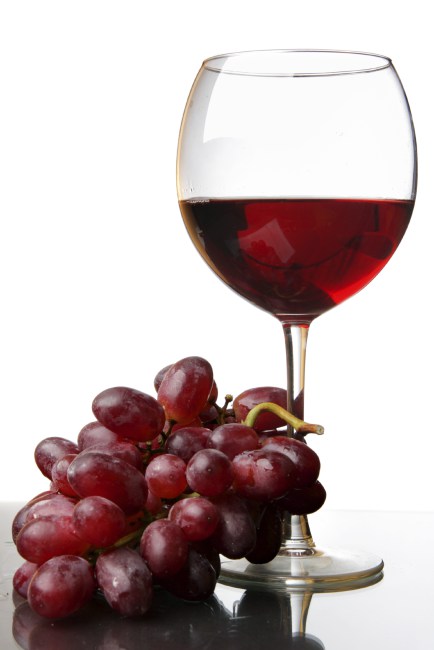The Role Of Red Wine In Medicine
History Of Red Wine In Medicine
The early medicine was closely connected with religion and supernatural practices. And those that were mostly authorised to administer medicine then were the magicians and priest. Wine’s close connection to ritual made it a rational device for these very early clinical methods. There were recipes for medicines that are based on wine in the past. These recipes were found in Papyri and Sumeria from Egypt. They are dating back to 2200BC.
Hippocrates, who is the father of this modern-day medication, suggested wine for a range of body disorders consisting of sleepiness and diarrhoea.
When the Greeks presented a much more systematised technique to medication, wine was still able to keep its noticeable duty. The Greek doctor Hippocrates took wine into consideration when it he was determining the component of a healthy and balanced diet regimen. He supported its usage as an anti-bacterial for injuries. He also acknowledged wine as a means in which other various other medicines can be blended for intake by the person. He further prescribed wine as a way out of other varieties of diseases which includes diarrhoea and a means to nullify or reduce the pains that comes with childbirth.
Also, religion performed an important part in encouraging the use of wine to achieve health benefit. The Jewish Talmud recognised wine as the highest in rank when it comes to the history of medicine. Anywhere there was unavailability of wine; it was difficult to produce a medicine as cure for any ailment. In the bible, if we look at the first book of Pau the Apostle to Timothy who was his younger colleague in the faith, it was found there that Paul encouraged Timothy to take in little quantity of wine for the good of his stomach and so that he would have a proper digestion.
Although the Islamic Koran included limitations on all alcohol, Islamic physicians such as the Persian Avicenna in the 11th century AD kept in mind that wine was a reliable gastrointestinal help. But because of the legislative restrictions, they were restricted to make use of wine as an anti-bacterial in the treatment of injuries. Not only that, it was also recorded that the Catholic monasteries throughout the Middle Ages also made use of wine for clinical therapies on a regular basis.
The role of red wine in medicine was so closely connected that the very first published book on wine was created in the 14th century by a medical professional, Arnaldus de Villa Nova, with prolonged essays on wine’s viability for therapy for a selection of some clinical disorders such as mental deterioration and sinus issues.
 What is Red Wine?
What is Red Wine?
Red wine is a kind of wine produced from dark-coloured (black) grape selections. The real colours of the wine could vary from extreme violet(which is regular about young wines) to brick red for fully grown wines and brownish colour for older red wines. The processes of producing the red wine have much to do with extracting the flavour and colour components which are present in the grape fruit.
Red wine is made by squashing and fermenting whole grapes that are dark in colour. It is relatively high in anti-oxidants, and also drinking modest quantities has actually been revealed to be great for health and wellness. The alcohol content in wine is mostly in the range of 12%–15%.
There are several kinds of Red wine, which differ in taste preference and different colours. The following are the types of Red wine
- Syrah (or Shiraz)
- Merlot
- Cabernet sauvignon
- ( Mal-bek).
- Pinot noir
- Zinfandel
- Sangiovese
- Barbera
It is now well known that moderate consumption of red wine has health benefit. It has even been further proven by the history of red wine in medicine and other latest researches. This is because the antioxidants in red wine are not only powerful nut also high as well. But consuming excessive wine could have repercussions for your wellness. These could include numerous various persistent illnesses or any of the following:
- Anxiety
- Psychological health issue
- Cardiomyopathy
- Arrhythmias
- Stroke
- High blood pressure
- Fatty liver
- Alcoholic liver disease
- Cirrhosis
- Numerous cancers cells
- Pancreatitis
Red Wine Has Powerful Plant Substances and Anti-oxidants, which also consist of Resveratrol.
So Exactly What Is Resveratrol?
 The resveratrol is a substance that is found generally in some plants. This resveratrol is usually produced by plants in order to keep fungi and bacteria away from them and also shield them away from ultraviolet irradiation. The resveratrol that is found in this red wine majorly comes from the skin if grape fruits which are being used to make. Red wine is able to contain a high concentration of resveratrol due to the process used in producing it, which includes the fact that red wine is usually fermented with skins of grapes for a long time. The truth here is that, by simply eating a grape fruit or drinking juice made from grape, you can still get the resveratrol without having to drink red wine. Red and also purple grape juices could have some of the exact same heart-healthy advantages of red wine. Resveratrol plays an important part in the role of red wine in medicine.
The resveratrol is a substance that is found generally in some plants. This resveratrol is usually produced by plants in order to keep fungi and bacteria away from them and also shield them away from ultraviolet irradiation. The resveratrol that is found in this red wine majorly comes from the skin if grape fruits which are being used to make. Red wine is able to contain a high concentration of resveratrol due to the process used in producing it, which includes the fact that red wine is usually fermented with skins of grapes for a long time. The truth here is that, by simply eating a grape fruit or drinking juice made from grape, you can still get the resveratrol without having to drink red wine. Red and also purple grape juices could have some of the exact same heart-healthy advantages of red wine. Resveratrol plays an important part in the role of red wine in medicine.
 A lot of the resveratrol in grapes remains in the seeds and the skin. The complied plants and beverages below are abundant in resveratrol.
A lot of the resveratrol in grapes remains in the seeds and the skin. The complied plants and beverages below are abundant in resveratrol.
- Red wine
- Grapes
- Blueberries
- Raspberries
- Bilberries
- Peanuts
Grapes are generally high in many antioxidants. These consist of proanthocyanidins, epicatechin, resveratrol and catechin. These anti-oxidants, particularly resveratrol as well as proanthocyanidins, are thought to be liable for the wellness advantages of red wine. Proanthocyanidins might have the ability to curb the oxidative damage in the body. Not only that they have been said to help in the prevention against cancer and heart problems. Resveratrol is discovered in grape skin.
This anti-oxidant has actually been related to lots of wellness advantages, consisting of combating swelling and cancer cells. Resveratrol could additionally make pets that are being kept for test live longer.
 What Is The Moderate Wine Intake?
What Is The Moderate Wine Intake?
When talking about the role of red wine in medicine, it can only be discovered when the wine is taken moderately. “Modest” wine usage is claimed to be helpful for health and wellness. Just what is “modest” wine usage? Just how much wine you could consume at a go before the wellness advantages of taking red wine develop into risks. This could be as a result of many factors which could include an individual’s age, body stature and general basic state of wellness. Another factor that could raise risk in taking red wine is whether it is taken on an empty stomach or eaten with food.
Females take in alcohol much more quickly compared to guys due to their reduced body water material and also various degrees of tummy enzymes. This is why the moderate intake of red wine for women will certainly be reduced in quantity compared to that of males. Men generally weigh more than woman and apart from that; men have more enzymes in them that can metabolise alcohol more than women do. Some medical professionals specify “modest” usage as one 5 oz (150 ml) glass of wine each day for ladies and also 2 glasses daily for guys.
 Almost all research study into the favourable clinical advantages of wine intake makes a difference in between modest intake and heavy or binge drinking. As earlier said, moderate degrees of wine consumption differ from one individual to another and that is according to specific age, weight, genetic and the use of drug or eating of food. This was further confirmed in the “Dietary Guidelines for Americans 2010″ which was released by the United States Department of Agriculture.
Almost all research study into the favourable clinical advantages of wine intake makes a difference in between modest intake and heavy or binge drinking. As earlier said, moderate degrees of wine consumption differ from one individual to another and that is according to specific age, weight, genetic and the use of drug or eating of food. This was further confirmed in the “Dietary Guidelines for Americans 2010″ which was released by the United States Department of Agriculture.
According to National Health Service, UK, it is not advisable fro guys to drink more than 3-4 units of alcohol per day and for the women, they should not drink more than 2-3 units of alcohol in a day. If you currently take red wine, do make sure that you do that moderately. For women generally (regardless of their age), and men of the age of 65 years and above, a drink per day is ok.
Do not forget. This is not talking about red wine alone, but the total intake of alcohol generally in a day. If you drink this recommended amount of red wine in a day and also go ahead to take any other drinks that are also alcoholic, you could be putting yourself in a level of excessive drinking. If already have a history of alcohol addiction or family history of alcoholism, it would be good for you to stay away from red wine and any other alcoholic drink all together.

Final Thought
In spite of red wine being connected with some wellness advantages, none of them are deserving of motivating alcohol intake. If you are currently consuming red wine, then there’s no demand to quit (unless you’re consuming more than the recommended quantity already). But as long as you do not drink more than necessary, it could only mean you might be doing yourself a favour.

0 Responses